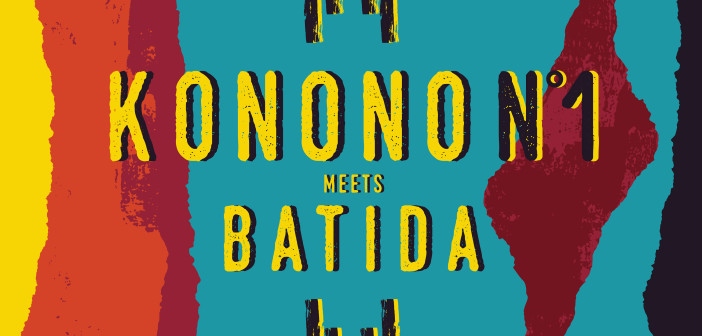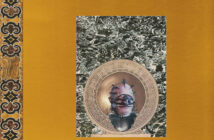When most of us first heard Congotronics, courtesy of Belgian Vincent Kenis’ forays into the Democratic Republic of Congo, searching for an electric sound from his childhood, it felt like the most alien music you could imagine. The home made electric likembe’s (thumb pianos), constructed from salvaged car parts then overdriven through shitty loudspeakers, seemed to have more in common with techno than traditional Congolese music. Yet it sounded like neither, and was such a singular intoxicating sound that it created a sensation.
A series of albums followed, then an inspired remix series Tradi Mods Vs Rockers, which pitted Konono No 1 and their compatriots Kasai Allstars against the likes of Shackleton, Juana Molina, Eye from the Boredoms, Animal Collective, Burnt Friedman and numerous other contemporary Western musicians. The results were astounding, and it was fascinating to hear worlds collide, the results of which pushed all artists in totally unexpected directions and into areas they would never have visited otherwise.
In keeping with this someone introduced Konono No 1 to Batida, and it’s a mix that is not as peculiar as it initially seems. Batida, aka Pedro Coquenão was born in Angola and now resides in Lisbon Portugal – one of the hotbeds of electronic music production at the moment – particularly from Angolan descendents courtesy of the Principe label. He’s released two albums on Soundway that almost defy time and place, cheerfully creating electronic dance music that borrows from traditional Angolan music, though he’s also not afraid to dabble in Afrobeat, Brazilian music and numerous geographic locations in between. Konono N°1 are of course based in Kinshasa, DRC, but originate from the Bakongo ethnic group, which lives in a region straddling the border between the Congo and Angola – so it’s quite fascinating that these neighbours could be approaching the collaboration from such totally different worlds.
Batida, it quickly becomes apparent, isn’t afraid to really mess with the texture and timbre of Konono No1’s sounds, also he’s more than willing to craft structures that echo the kind of dance, or dance floor friendly music that he likes to create. There’s no deference or quest for authenticity – this is a true creative collaboration. More often than not Batida sets up a percussive framework and lets Konono No1 wail away over the top – often treating their sound so they are awash in a soup of reverb, cutting small loops or using filters, echoes and delays. For Batida Konono No1’s sounds are just another one of the ingredients. This serves to push the Konono No1 sound into unfamiliar terrain, and it’s endlessly fascinating – recalling the Tradi Mods Vs Rockers era – yet differing because Konono No1 feel much more part of the process.
What Batida does well is get on a groove and let it just go onwards forever – or maybe it’s Konono No1. Regardless Batida’s intrusion doesn’t remove Konono No 1’s strengths; rather he just shifts the focus and context. Tracks clock in at anything from eight to eleven minutes, with only one sitting at four and a half. It was recorded in Batida’s studio in Lisbon, and they were joined by some of Batida’s friends, guitarist Papa Juju (Terrakota), vocalist Selma Uamusse and MC AF Diaphra. The presence of these participants in particular provides some of the most incongruous moments on the album, such as AF Diaphra’s Portuguese rap on the album opener Niele Kalusimbiko, or even the distinctively Congolese sounding chants on Bom Dia (Portuguese for good morning) – a collision in itself.
Konono No1 meets Batida is a bold statement. It takes risks, some pay off, others are a little less successful, such as when the beats get a little too rigid, yet that’s the risk of making such forward thinking music. There’s no map for this. The way music should be.




